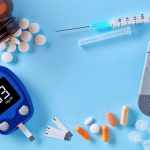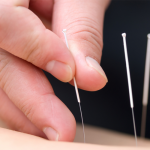The occurrence of stroke is unpredictable. During any time, the flow of blood can be cut-off to the brain resulting in paralysis. A lot of people suffer from stroke, and if unattended, they result in fatal deaths as well. More people are susceptible to stroke, and signs of a stroke in women are pretty distinctive. The old ones are prone to this than the younger ones. There are a lot of reasons for a stroke to occur, and some of them are as mentioned below:
- People with diabetes
- High blood pressure
- Oedema in the brain
- Brain injury due to accidents
- High cholesterol
- Smoking
There are two main kinds of strokes, and they are Ischemic and Haemorrhage strokes. In ischemic stroke, a part of the brain develops swelling. This results in the explosion of a blood vessel paralyzing one part of the body. In the hemorrhagic stroke, the blood vessel just ruptures, causing a stroke.
According to research and statistics, women are more susceptible to stroke than men because though the signs of a stroke in women are different:
- The lifespan of women are longer
- Pregnancy and childbirth
- Birth control pills
- High blood pressure, cholesterol, and diabetes
There are a lot of symptoms that can be noticed before the stroke. While some of the symptoms in both men and women are common, a few distinctive ones are discussed in this article.
Table of Contents
Physical signs of a stroke in women
Nausea and vomiting:
Women may end up feeling nauseated for no proper reasons at all. They might start vomiting all day long and start feeling very tired. This symptom is unique to women. This can be regarded as the early symptoms of a stroke.
Seizures
This is one of the most common symptoms. People start suffering from convulsions, fits, and seizures frequently. In some people, the seizure may happen just once and can end up, resulting in a massive stroke. A few others may keep getting them repeatedly at regular intervals. With seizures, the central nervous system starts becoming weaker and weaker. Due to this, the chances of getting a paralysis or a stroke are higher.
Hiccups
Hiccups are extremely normal. They can turn out to be a disaster at times as they are also clear indicators of a stroke. Some women experience hiccups more than others. During this time, if the hiccups are coupled with blurry vision or chest pain, it becomes important to consult a doctor immediately. These can be the early signs of a stroke.
Breathing issues
When there is no proper oxygen supply to the brain, the blood vessels fail to perform their duty too. Extreme difficulty in breathing, along with chest pain, should also be taken care of. Neglecting these things as trivial can be dangerous.
Passing out frequently
A few people keep fainting frequently. Generally, it is considered to be due to fatigue and lack of energy. At times, when people pass out the part of the brain responsible for controlling the consciousness can immediately stop responding. This can result in a massive stroke too.
These are all major physical symptoms. Apart from these, there are a lot of symptoms associated mentally with stroke. We shall get to know all of those from the following section.
Mental signs of a stroke in women
Agitation
Women also undergo issues with anger quite frequently. This could be because of the high blood pressure issues as well. Most of the doctors consider this as early symptoms of stroke in elderly women.
Disorientation
A lot of people experience dementia and forgetfulness. Though this symptom can also be due to aging, in women patients with severe stroke, this has been recorded as one of the major symptoms.
Changes in behavior
A lot of patients that survive stroke experience pseudobulbar affect. This effect results in a change in behavior. Also, some women experience a lot of behavioral changes a lot earlier than the stroke occurrence, and this can be frequent as well. Hence, this can also be considered as one of the stroke symptoms.
Hallucination
At times, even before the stroke, the mid-region of the brain gets affected badly. The occurrence of hallucinations can become pretty frequent during such times. Ignoring this as a simple thing might cost your life as well.
Unresponsiveness
During the ischemic stroke, the blood starts to clot in the brain. This can cause unresponsiveness as it paralyzes the entire body. This unresponsiveness can make a person turn into a vegetative state. It can also cause coma and prolonged deaths at times.
These are some of the unique symptoms found exclusively in women. Apart from these, men and women both experience some common symptoms, and they are as follows:
Immediate numbness in the face, limbs, and hands can be one of the most common indicators of a stroke.
- Unable to speak, and pronunciation can become difficult.
- Lack of clarity in thoughts and too much confusion
- Loses balance while walking
- The vision fades off completely in one or both the eyes.
- Cannot be able to co-relate quickly as the thoughts are fuzzy
- Dizziness and lacks balance or coordination
What should you do when you have these symptoms?
It is unnecessary that all these symptoms will always direct towards a stroke occurrence. However, when the frequency of any of these above-mentioned signs increases, it is recommended to consult a doctor and get the necessary health check-up done.
The first thing that can easily point out if someone is about to get a stroke is through facial expressions, eye movement, and speech. You can perform the “BEFAST” technique to identify.
- B – Balance of a person should be checked
- E – Eyes, check for the vision impairment
- F – Face, expressions, and numbness
- A-Arms, Weakness in the arms
- S – Speech, Speech would be unclear
- T – Timely – Get in touch with the doctor
These are some of the symptoms of stroke in elderly women that sets them from men. If you are constantly facing any of these things, it is important to get a health check-up done immediately. Strokes can be as fatal as any other disease like cancer and cardiac arrest. It can cause immediate and prolonged deaths, as well. Therefore, keeping track of your health is essential.







